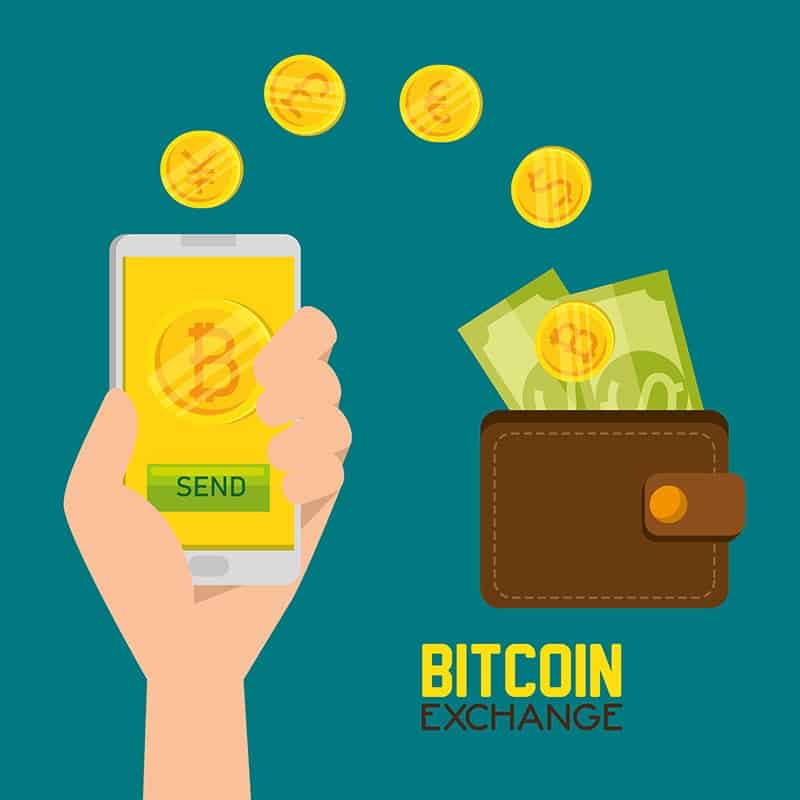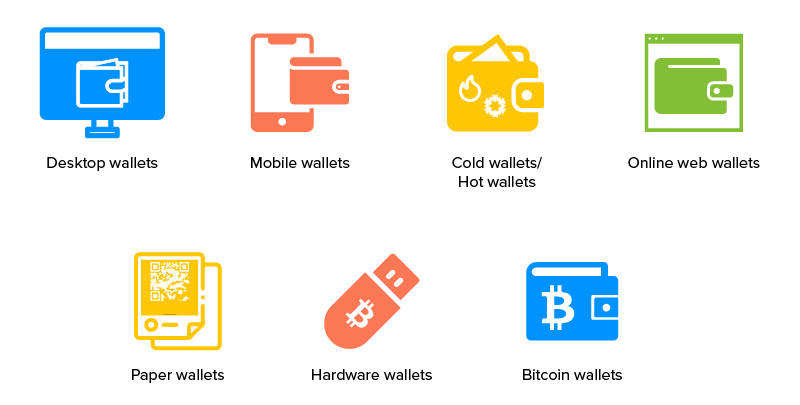Safe Crypto Wallet for Beginners: Your Foolproof Guide to Digital Security
Diving into digital money means beefing up your safety game. Your cash and cards got a wallet, your digital coins need one too. But not just any pocket—a safe one. Making sense of safe crypto wallet for beginners can be tricky, yet it’s crucial. Here’s the lowdown: crypto wallets aren’t just digital stash spots. They’re your personal safeguard against hackers and oops moments. In this guide, I’ll walk you through wallet types, picking a winner, and staying a step ahead of tricks and threats. With my help, your first crypto wallet will not just hold your digital dough—it will throw a steel shield around it!
Understanding Crypto Wallets for Beginners
What is a Crypto Wallet?
Think of a crypto wallet as a key ring. It holds keys to access your digital money. Crypto wallets keep your public and private keys. The public key is like an address that others use to send you money. Your private key is a secret password. Only you should know it. It lets you unlock and spend your funds.
Crypto wallets do not store your actual coins. Coins live on the blockchain. This is an online ledger. Your wallet shows your balance based on the blockchain. And it lets you make and get payments. You need a wallet to use cryptocurrencies like Bitcoin.
Types of Crypto Wallets: Hardware, Mobile, Desktop, and Paper
Now let’s talk types. The best starter crypto wallet depends on what you want. Here are your options:
Hardware wallets are like secure USB sticks. They hold your keys offline. This is cold storage for newcomers. It makes them safe from online hacks. Plug it into a computer or phone when you want to use your money. Novices like these because they are easy to use.
Mobile wallets live on your phone. They make paying with crypto easy. Just scan a QR code or send to a friend’s address. Security is top-notch with things like two-factor authentication. These are good if you use crypto daily.
Desktop wallets are programs for your computer. They give you full control over your wallet. They offer strong encryption for crypto wallets. Keep in mind, your computer safety matters a lot here.
Paper wallets are simple. They’re pieces of paper with your keys printed on them. No online hacker can get them. But watch out! If the paper is lost or damaged, so is your money.
For someone setting up their first wallet for cryptocurrency, each type has its pros and cons. For example, user-friendly Bitcoin wallets are often mobile or desktop types. But they might not be as safe as hardware wallets for novices. On the other hand, hardware and paper wallets can be less convenient for everyday use.
Beginners should look for secure digital currency wallets that are easy to use. Trusted multi-currency wallets mean you can keep various kinds of crypto in one place. Whatever you choose, pick a wallet that fits your need for safety and ease.
When you start, wallet selection criteria for new users should focus on security. Look for features like encryption and two-factor authentication in crypto wallets. These help stop unwanted access and keep your funds safe.
Remember, as much as you take care of your wallet, also be smart about scams. Avoiding scams with crypto wallets is about being careful. Never share your private keys. And always double-check before you send money or give out personal info.
For safety and peace of mind, a beginner-friendly cryptocurrency storage option can be crucial. It’s your money, after all. Protecting your crypto investments as a beginner means learning all you can. And then choosing the right kind of wallet for you.
Selecting Your First Crypto Wallet
Assessing Wallet Security Features
When you start with crypto, picking a safe wallet is key. Think of it like choosing a bank. But with crypto, you’re in charge. You must check for strong security to keep your money safe. The best starter crypto wallet will tick some must-haves. It must have encryption. This means turning data into a code to stop hacks. You’ll also want two-factor authentication. This is a second step to prove it’s you, like a code sent to your phone.
Look for hardware wallets for novices. They’re like a USB. They store your crypto offline. This is called cold storage for newcomers. It’s safe from online threats. But, remember, they can still get lost or break. So, keep that in mind.
A user-friendly Bitcoin wallet is often a mobile or desktop one. It’s on your phone or computer. It’s easy to access and good for daily use. This is a hot wallet. Hot because it’s online. And while it’s handy, it can be risky. Hackers can try to steal if you’re not careful. Make sure you’re using a secure digital currency wallet by checking for a trusted brand.
A less known type is the paper wallet for crypto safety. It’s a piece of paper with your crypto keys printed on it. No tech needed, so super safe, but also easy to lose or damage.
For each choice, find a wallet that’s beginner-friendly and fits your needs. One that’s simple but strong. Go for a trusted multi-currency wallet if you plan to own different types of digital coins. It’s like a multi-tool for crypto.
The Process of Setting Up and Funding Your Wallet
Once you select, setting up your first wallet for cryptocurrency is next. Follow the steps given by your wallet provider. They’ll guide you through. You’ll make a new account. Then, you secure it. This is where backup solutions for crypto wallets come into play. Write down your recovery phrases for wallet security and store them safely. If things go wrong, you’ll thank yourself.
To add funds to your wallet, you can buy crypto from an exchange. Or, get it from someone else. Then, you transfer it to your wallet using a unique address. Always double-check this address. A mistake can mean lost funds.
Next, know how to make secure crypto transactions for beginners. For mobile crypto wallets for beginners, you can often use QR codes. It’s a scan and go. Desktop wallets for new cryptocurrency users work with a click and confirm system. It’s all about careful steps.
Now that you’re set, keep an eye out for scams. Avoiding scams with crypto wallets means not sharing keys. And never click on shady links claiming to be support. Phishing protection in crypto wallets relies on you being alert.
Every step, from wallet choice to funding, is your chance to keep crypto safe. Use this guide to become a smart, secure crypto owner. Your path to digital gold starts with a strong safe!
Maintaining and Enhancing Your Wallet Security
Importance of Backup Solutions and Recovery Phrases
We all make mistakes, but in the crypto world, they can cost you big. Imagine if you lost access to your wallet. This is where backup solutions come in. They are like a safety net. The best starter crypto wallet will let you set up a backup easily. This could be another device or even written notes.
Why bother? Well, life happens. Phones break, computers crash, and things get lost. But with a backup, you can get back your digital cash without a sweat. Recovery phrases are super crucial too. They are a bunch of words you need to keep in a safe place. Think of them like a secret key to your money house. Without them, your coins could be gone for good.
Cold Storage Solutions and Avoiding Phishing Scams
Now, let’s shift gears to cold storage. This means storing your coins off the internet. It’s a top-notch move for keeping your stash safe. Think of it like storing your snacks in a high cupboard, away from pesky siblings. Hardware wallets for novices are great for cold storage. They are like a USB but for your crypto.
Hot wallets connect to the internet. They’re handy but risky. So, using cold storage can save you from losing your lunch money to online thieves. Aside from this, watch out for phishing. It’s a trick to steal your personal info. Always think twice before you click on links or share your secret details.
To stay safe, use your noggin. Stick to user-friendly Bitcoin wallets and trusted multi-currency wallets that prioritize security. Choose wallets that push for strong passwords and have two-factor authentication. Don’t be an easy target for the bad guys.
A good rule of thumb? If something smells fishy, it could be a scam. Be smart, and your crypto journey will be a joyride, not a headache. Remember, as a beginner, keeping your coins safe should be your number one goal.
Advanced Wallet Features and Futureproofing
Multi-Currency Wallets and Digital Token Compatibility
Have you ever been to a magic show? Well, think of a trusted multi-currency wallet like a magician’s hat – one hat, many rabbits. Just like this hat can hold lots of different rabbits, a multi-currency wallet holds various types of digital money – from Bitcoin to Ether, all in one place. Handy, right?
When picking your first wallet, you want one that fits more than one type of crypto coin. This is called “digital token compatibility”. You’ll want a wallet that’s not just for Bitcoin but for many kinds of digital cash. Let’s say you start with Bitcoin but later want to buy some Ether. A good multi-currency wallet lets you do this without needing a new wallet for each currency.
What’s great is that finding a secure digital currency wallet that can handle many coins is easy. Look for a best starter crypto wallet with high reviews for “multi-currency support”. This means it works with lots of different kinds of coins. You also want the wallet to be user-friendly. No one likes hard-to-use things!
Wallet Insurance and Staying Informed on Crypto Wallet Innovations
So, you’ve got your coins in a safe place, but what if something goes wrong? That’s where crypto wallet insurance comes in. Not all wallets offer this, but some do. It’s like a safety net for your digital money. Think of it like bike helmets for your coins – it protects your head, err, I mean your investment!
To protect your coins, always check for “wallet insurance” when choosing one. It’s an extra layer of safety. Just remember, not all issues are covered, so read up on what’s included.
Now, onto staying ahead of the game: the crypto world moves super-fast, like a race car. To keep up, you need to stay informed about new inventions. For example, “decentralized wallets” are one of those cool new things worth looking into. They spread out your coin info across many computers, making it harder for bad guys to get to your coins.
Keeping up with the newest wallet features matters a lot. You want your coins to be safe today and in the future. Knowing about the latest like “blockchain wallet security” or “encryption for crypto wallets” is key. Don’t worry if these terms sound strange now; the more you learn, the easier it gets. Plus, everyone starts somewhere!
Always read the latest cryptocurrency wallet reviews and news. It helps you know what’s good out there and what’s not. And last but not least, be careful who you trust. Scams are like weeds in a garden; you don’t want them! Remember, knowledge is power. The more you know, the safer you and your digital money will be.
We’ve walked through the basics of crypto wallets—what they are and the different kinds you can choose from, like hardware and mobile wallets. I’ve shown you how to pick a secure wallet and get it ready for your first funds. It’s key to back it up and protect it from scams once you’re all set up. Futureproof your finances by looking into wallets that hold many types of digital money and stay updated on new features.
To wrap it up, the right wallet lets you manage your crypto with confidence. Remember, the space is always changing, so keep learning and staying safe. Your wallet is more than a tool; it’s the gateway to your digital wealth. Make smart choices, use strong security, and you’re on the right track. Let’s embrace the crypto world with knowledge and care. Follow Crypto Market Pulse to update more knowledge about Crypto.
Q&A :
What is a safe crypto wallet for beginners?
When starting with cryptocurrency, choosing a wallet that is user-friendly and secure is paramount. A safe crypto wallet for beginners should offer robust security features like two-factor authentication (2FA), back-up options, and a straightforward user interface. Hardware wallets like Ledger or Trezor are often recommended for beginners due to their security advantages, combining ease of use with strong protection. Software wallets like Exodus or Trust Wallet can also serve as suitable options for those new to crypto, offering convenient access and good security measures.
How do I choose a secure cryptocurrency wallet?
To choose a secure cryptocurrency wallet, you need to consider several factors:
- Type of wallet: Decide between hardware, software (desktop or mobile), and paper wallets, with hardware wallets being the most secure.
- Security features: Look for wallets offering 2FA, multi-signature support, and regular updates to defense mechanisms.
- Reputation: Research user reviews and expert opinions on the wallet’s reliability and security track record.
- Private key control: Ensure that you have full control over the private keys associated with your wallet.
- Ease of backup and recovery: Opt for wallets that offer clear and manageable backup and recovery procedures.
- Compatibility: Ensure that the wallet supports the cryptocurrencies you plan to use.
What are the most secure crypto wallets for first-time users?
For first-time users, wallets that balance security with simplicity are essential. Some of the most secure and beginner-friendly wallets include:
- Ledger Nano S/X: These hardware wallets are popular for their security and user-friendly interface, ideal for new users.
- Trezor One/Model T: Another set of hardware wallets, Trezor devices, are known for their robust security and ease of use.
- Coinbase Wallet: A software wallet that’s separate from the Coinbase exchange, offering a simple interface and security measures suitable for beginners.
- Mycelium: A mobile wallet that’s secure and straightforward, with advanced privacy and security features for those just starting with crypto.
Can I trust online crypto wallets for storage?
While online wallets, also known as web wallets or hot wallets, offer convenience in accessibility, they are generally considered less secure than hardware or paper wallets due to their constant connection to the internet. Trusting an online wallet for storage depends on the wallet provider’s security protocols and the user’s risk tolerance. It’s generally advised to use them for small, everyday transactions, and to store more significant amounts of cryptocurrency in offline wallets.
Are free crypto wallets safe for beginners?
Yes, many free crypto wallets are safe for beginners; however, the level of security can vary based on the type of wallet and the service provider. Free software wallets can offer strong security features, but it’s crucial for users to practice safe security measures, like using a strong, unique password and enabling 2FA. While free, hardware wallets typically provide higher levels of security compared to free software wallets and can be a worthwhile investment for storing larger amounts. Always research and prioritize wallets known for their security and positive reputation within the crypto community.




